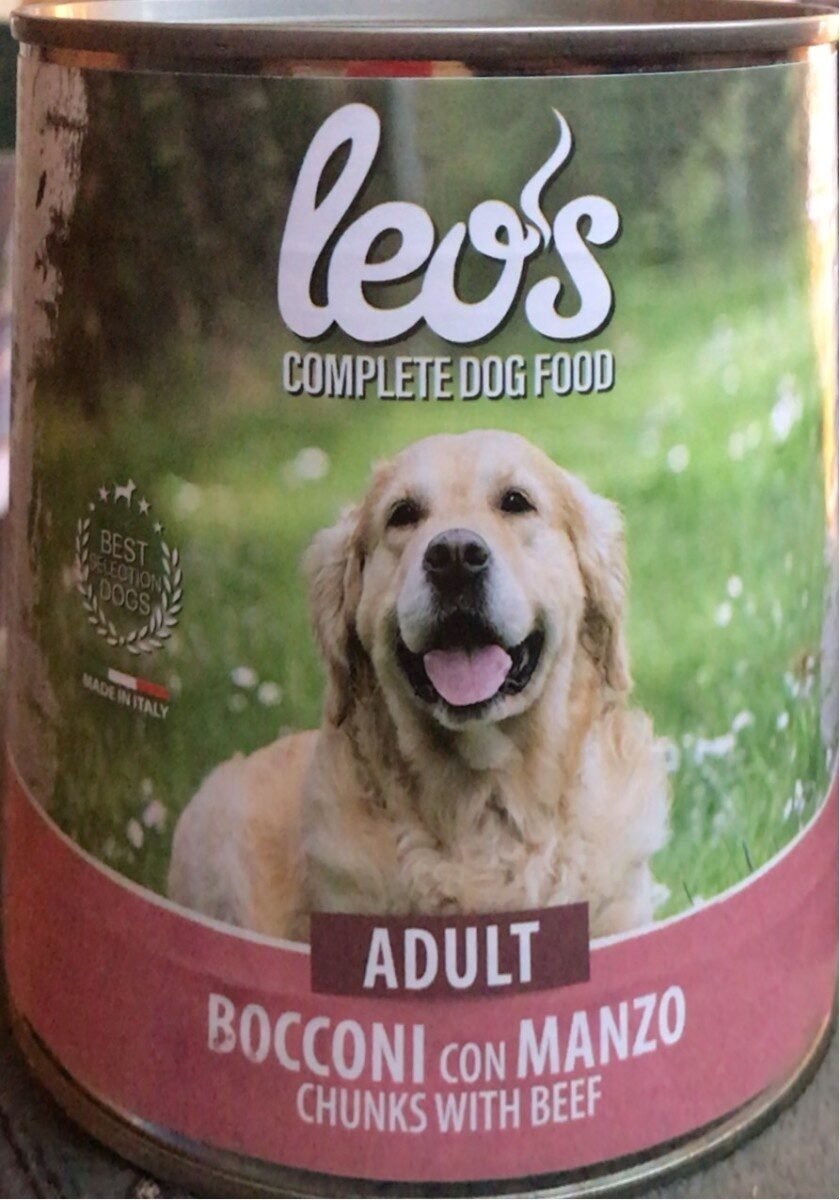If you’ve ever watched your furry friend struggle with allergies, you know just how frustrating it can be. From incessant scratching to upset tummies, allergies can turn your pup’s life into a constant battle. But fear not, help is on the horizon – in the form of the best dog training foods for allergies. These specialized formulas are designed to eliminate common allergens while still ensuring your pooch gets all the necessary nutrients for optimal health. Get ready to wag those tails as we delve into the world of canine cuisine, exploring the top contenders that will keep allergies at bay and your furry companion happy and healthy.
Table of Contents
- Perfect Food Choices for Dogs with Allergies
- Understanding the Allergy Triggers in Dog Food
- Key Nutrients to Look for in Allergy-Friendly Dog Training Foods
- Expert Recommendations for the Best Allergy-friendly Dog Training Foods
- Choosing the Ideal Dog Training Food to Support Allergy Management
- Q&A
- Closing Remarks

Perfect Food Choices for Dogs with Allergies
Allergies can make mealtime a challenge for our canine companions. Fortunately, there are plenty of perfect food choices that can help alleviate their discomfort and keep their tails wagging. When it comes to accommodating dog allergies, it’s essential to opt for hypoallergenic ingredients that are gentle on their stomachs and promote overall well-being.
Hypoallergenic Proteins:
- Lean cuts of turkey or chicken are excellent options for dogs with allergies. These proteins are easily digestible and low in fat, making them an excellent choice for pups with sensitive tummies.
- Salmon is another fantastic hypoallergenic protein source. Packed with essential fatty acids, it supports healthy skin and coat, while being gentle on their digestive system.
Grain-Free Carbohydrate Sources:
- For canines who are sensitive to grains, consider incorporating sweet potatoes or quinoa into their diet. These nutritious alternatives provide energy and essential nutrients while being easy on their digestive tract.
- Pumpkin is another excellent choice, rich in fiber and packed with vitamins. It aids digestion and may also help soothe allergy-related gastrointestinal symptoms.
Supplement with Allergy-Fighting Extras:
Boost your dog’s overall immune system and provide relief from allergies by including the following beneficial supplements in their meals:
- Omega-3 fatty acids: Found in fish oil, these help reduce inflammation and promote healthy skin and coat.
- Probiotics: Beneficial bacteria that support gut health and ease allergies.
- Coconut oil: Known for its anti-inflammatory properties, it supports skin health and alleviates itching.
Remember, it’s always essential to consult with your veterinarian before making any significant changes to your dog’s diet. They can provide tailored advice and ensure your furry friend gets the best possible nutrition while managing their allergies.

Understanding the Allergy Triggers in Dog Food
Common Allergy Triggers in Dog Food
Allergies can be a pesky concern for dog owners. Identifying the triggers behind allergic reactions in your furry friend’s food is the first step towards ensuring their health and well-being. Here are some common allergens found in dog food:
- Grains: Wheat, corn, and soy are frequent culprits when it comes to causing allergic reactions in dogs. These ingredients are commonly used as fillers in commercial dog food but can lead to skin irritation, digestive issues, or even more serious symptoms.
- Poultry: Chicken, turkey, and other poultry products may trigger allergies in some dogs. Sensitivities to poultry protein can manifest as ear infections, itching, or gastrointestinal problems.
- Fish: Although fish is generally considered a healthy protein source for dogs, some may develop sensitivities to certain types of fish. Allergic reactions to fish can cause itchiness, hives, or digestive disturbances.
- Dairy: Just like humans, some dogs can be lactose intolerant. Dairy products like milk, cheese, and yogurt can lead to digestive issues, including diarrhea and vomiting.
- Beef: Although beef is a common ingredient in many dog foods, some dogs may develop an allergy to it. Symptoms can include skin rashes, upset stomach, and excessive scratching.
Remember, every dog is unique, and their allergic reactions can vary. It is essential to consult with your veterinarian to accurately diagnose and manage any potential allergic triggers in your dog’s food. By understanding what ingredients to avoid, you can provide your furry companion with a well-balanced and nourishing diet that supports their overall health and happiness.

Key Nutrients to Look for in Allergy-Friendly Dog Training Foods
When it comes to selecting the perfect training food for your furry companion with allergies, it’s essential to prioritize their nutritional needs. Here are some key nutrients to consider:
- Omega-3 Fatty Acids: These healthy fats provide numerous benefits for dogs with allergies, such as reducing inflammation, promoting a healthy coat and skin, and supporting their immune system.
- High-Quality Protein: Look for dog foods that boast a good source of lean protein like chicken, turkey, or fish. These proteins are easier for dogs to digest and provide the necessary amino acids to maintain strong muscles.
- Probiotics: Allergies can disturb your dog’s gut health, leading to digestive issues. Foods enriched with probiotics help maintain a healthy digestive system and support their overall well-being.
- Vitamins and Minerals: Ensure the training food is packed with essential vitamins and minerals like vitamins A, E, C, and B complex, as well as calcium, phosphorus, and magnesium. These nutrients work together to support your dog’s immune system, promote healthy bones, and maintain optimal body functions.
Remember, every dog is unique, so it’s crucial to consult with your veterinarian to determine the specific dietary requirements and find the best allergy-friendly training food that suits your canine friend’s needs, preferences, and overall health.
Expert Recommendations for the Best Allergy-friendly Dog Training Foods
When it comes to training your allergy-prone furry friend, finding the right food can make all the difference. We asked leading experts in pet nutrition for their recommendations on allergy-friendly dog training foods that not only support your pup’s health but also cater to their specific dietary needs.
1. Grain-Free Options:
For dogs with grain allergies, opting for grain-free training treats is essential. Look for brands that use alternative ingredients like sweet potatoes, peas, or lentils as a substitute for grains. Some popular choices include:
- Brand A: These grain-free bites are packed with real meat and are free from common allergens, making them an ideal training reward for sensitive dogs.
- Brand B: These all-natural, grain-free treats offer a variety of flavors and are specially formulated to support healthy digestion for dogs with allergies.
2. Limited Ingredient Formulas:
If your dog has multiple allergies or sensitivities, consider trying limited ingredient training foods. These formulas include a decreased number of ingredients, making it easier to identify and avoid potential allergens. Here are two recommendations:
- Brand C: Their limited ingredient treats are made with a single protein source like turkey or fish, and are free from common allergens such as gluten, corn, and soy.
- Brand D: These tasty morsels contain only a handful of ingredients, making them perfect for dogs with sensitive stomachs or food intolerances.
Remember, it’s always crucial to consult your veterinarian before making any significant changes to your dog’s diet, especially if they have known allergies. That way, you can find the best training food options tailored to your pet’s specific needs.
Choosing the Ideal Dog Training Food to Support Allergy Management
As a responsible dog owner, it is crucial to provide your furry friend with a diet that not only aids in training but also addresses any allergies they might have. Finding the perfect dog training food to support allergy management can seem like a daunting task, but fear not! We’ve got you covered with some helpful tips to make the decision easier.
Consider the following:
- Identify your dog’s allergies: Understanding what your dog is allergic to is the first step in choosing the ideal training food. Common allergens include grains, certain proteins, and even specific vegetables. Consult your veterinarian to determine any allergies your dog may have.
- Opt for hypoallergenic options: Look for dog training foods labeled as “hypoallergenic.” These formulas are specially crafted to minimize potential allergic reactions and are usually free from common allergens such as wheat, corn, and soy.
- Check the ingredient list: Always read the ingredient list to ensure it aligns with your dog’s specific allergies. Avoid foods that contain the allergen triggers and opt for those that contain high-quality proteins like chicken or lamb, paired with easily digestible carbohydrates like sweet potatoes or peas.
Additional tips to consider:
- Consider a limited ingredient diet: If your dog has severe allergies, a limited ingredient diet might be beneficial. These diets contain a smaller number of ingredients, making it easier to identify and avoid potential allergens.
- Consult with a canine nutritionist: For complex allergy cases, seeking guidance from a qualified canine nutritionist can be immensely helpful. They can work with you to develop a personalized diet plan that caters to your dog’s specific needs.
- Monitor your dog’s progress: After transitioning to a new training food, keep a close eye on your dog’s behavior and health. Look out for any signs of allergic reactions and consult your veterinarian if necessary.
Remember, finding the ideal training food that supports allergy management is essential for your dog’s overall well-being. By taking these factors into consideration, you can ensure your furry friend receives the necessary nutrients while keeping allergies at bay.
Q&A
Which dog training foods are the best for allergies?
The best dog training foods for allergies are those that are made from limited ingredients, free from common allergens like wheat, soy, and corn, and contain novel protein sources like duck, venison, or kangaroo.
What are some examples of dog training foods that are allergy-friendly?
Some examples of allergy-friendly dog training foods include Blue Buffalo Basics Limited Ingredient Diet, Natural Balance L.I.D. Limited Ingredient Diets, and Merrick Grain-Free Real Duck & Sweet Potato Recipe.
Are there specific ingredients to avoid in dog training foods for allergies?
Yes, it is best to avoid dog training foods that contain common allergens such as grain, corn, soy, beef, chicken, and dairy. Also, artificial preservatives, flavors, and colors should be avoided.
How can I determine if my dog has food allergies?
If your dog frequently experiences symptoms like itching, excessive licking, ear infections, gastrointestinal upsets, or skin irritations, it might indicate a food allergy. Consult with your veterinarian to get a proper diagnosis.
Can I use homemade dog food for training if my dog has allergies?
Yes, homemade dog food can be used for training if your dog has allergies. However, it is essential to work with a veterinary nutritionist to ensure the homemade diet is nutritionally balanced and meets all your dog’s needs.
Are there any commercial dog training treats that are allergy-friendly?
Yes, there are several commercial dog training treats that are allergy-friendly, such as Zuke’s Mini Naturals, Wellness WellBites Soft & Chewy, and Plato Small Bites. Always check the ingredient list to ensure they are safe for your dog’s specific allergies.
Is it necessary to consult a veterinarian before changing my dog’s training food?
It is always recommended to consult a veterinarian before changing your dog’s training food, especially if they have allergies. A vet can provide guidance and ensure the new food meets your dog’s nutritional requirements while addressing their specific allergies.
Can switching to allergy-friendly training food completely cure my dog’s allergies?
While switching to allergy-friendly training food can significantly improve your dog’s allergies, it may not completely cure them. Allergies are complex and can have various triggers. Consulting a veterinarian and potentially conducting allergy tests can provide further insight and necessary treatment options.
Closing Remarks
As we conclude our exploration into the realm of dog training foods for allergies, one thing becomes evident: the power of nutrition in transforming the lives of our four-legged companions. From our journey through the vast dietary options available, we have discovered a plethora of ingredients that can soothe and alleviate the tormenting symptoms caused by allergies, ensuring a healthier and happier furry friend.
Remember, while dogs of all breeds and sizes may be prone to allergies, each furry buddy is unique. What works best for one may not work as effectively for another. Therefore, it is of utmost importance to consult your veterinarian and carefully consider your pup’s specific needs before implementing a new diet plan.
Whether you opt for a grain-free formula packed with lean protein or choose a novel protein source to mitigate sensitivities, you now possess a treasure trove of knowledge to tackle canine allergies. Embrace the potentials of fish, rabbit, and duck as novel proteins, and embrace the potential life-changing results they can bring.
Let us bid farewell to the days of scratchy skin, incessant itching, and tummy troubles. Armed with the power of proper nutrition, you can now embark on a new chapter of dog training, where allergies are a mere relic of the past. Say hello to a healthier, happier, and more vibrant pup as you explore the incredible world of hypoallergenic dog foods.
So go forth, dear readers, and fuel the journey to a sensitivities-free existence for your four-legged darlings. Celebrate their unique taste preferences and dietary restrictions, breaking free from the chains of allergy-related discomfort. Remember, it all begins with a bowlful of nutrition and a dollop of love.
May your adventures in nourishing your beloved dogs be filled with wagging tails, prancing paws, and a symphony of contented barks. Cheers to a future of boundless joy and unbridled wellness for our canine companions!
As an affiliate, my content may feature links to products I personally use and recommend. By taking action, like subscribing or making a purchase, you’ll be supporting my work and fueling my taco cravings at the same time. Win-win, right?
Want to read more? Check out our Affiliate Disclosure page.